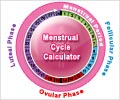- The Timing of the Age at Which Natural Menopause Occur - (https://pmc.ncbi.nlm.nih.gov/articles/PMC3285482/)
- Why am I gaining weight so fast during menopause? And will hormone therapy help? April 24, 2023 - (https://www.uchicagomedicine.org/forefront/womens-health-articles/menopause-weight-gain-hormone-therapy)
- Considerations-Hysterectomy - (https://www.nhs.uk/conditions/hysterectomy/considerations/ )
- The impact of menopause on sexual function in women and their spouses - (https://pmc.ncbi.nlm.nih.gov/articles/PMC8351832/)
- Menopausal Hot Flashes: A Concise Review - (https://pmc.ncbi.nlm.nih.gov/articles/PMC6459071/)
- 11 Supplements for Menopause - (https://www.webmd.com/menopause/ss/slideshow-menopause)
- Hirsutism - (https://www.ncbi.nlm.nih.gov/books/NBK470417/ )
- Osteoporosis Due to Hormone Imbalance: An Overview of the Effects of Estrogen Deficiency and Glucocorticoid Overuse on Bone Turnover - (https://pmc.ncbi.nlm.nih.gov/articles/PMC8836058/)
- Hormone replacement therapy (HRT) - (https://www.nhs.uk/medicines/hormone-replacement-therapy-hrt/)
- Breast Cancer Screening in the Average-Risk Patient - (https://www.ncbi.nlm.nih.gov/books/NBK556050/)
- Pregnancy still possible during perimenopause - (https://www.uclahealth.org/news/article/pregnancy-still-possible-during-perimenopause)
Menopause is a natural phase in a woman's life that marks the end of her reproductive years. While all women will experience menopause, the symptoms and their severity can vary significantly. This menopause calculator is designed to help you assess your symptoms and determine if you may need medical assistance.
Menopause Symptom Assessment
During menopause, many women experience symptoms such as hot flashes, night sweats, mood swings, sleep disturbances, and vaginal dryness. These symptoms can vary in intensity and duration, and while some women may find them manageable, others may seek medical advice for relief.
What are the stages of menopause?
Menopause is divided into three stages:
- Perimenopause: This is the transitional phase leading up to menopause, which can begin several years before the last menstrual period. During this time, women may experience irregular periods and various symptoms due to fluctuating hormone levels. The menopausal transition is further subdivided into early and late stages, with the late stage characterized by amenorrhea for 60 or more days and elevated FSH levels.
- Menopause: This stage is officially reached when a woman has NOT had her periods for 12 consecutive months. At this point, the ovaries significantly reduce hormone production, particularly estrogen and progesterone. Women may begin to experience vasomotor symptoms during this stage.
- Postmenopause: This stage follows menopause and lasts for the rest of a woman's life. During post-menopause, many women find that some symptoms, such as hot flashes, may decrease, while others, like vaginal dryness, may persist. It is also a critical time for monitoring health, particularly bone density and heart health.
How can I prepare for menopause?
Learn about the changes associated with menopause, including physical, emotional, and hormonal shifts.
Maintain a Balanced Diet:
- Fruits: Incorporate a variety of fruits, such as berries, apples, and citrus, which are high in vitamins, minerals, and antioxidants.
- Vegetables: Aim for a colorful array of vegetables, including leafy greens, cruciferous vegetables (like broccoli and cauliflower), and root vegetables, to ensure a wide range of nutrients.
- Whole Grains: Choose whole grains like brown rice, quinoa, and whole wheat bread, which provide fiber and help maintain stable blood sugar levels.
- Lean Proteins: Include sources of lean protein such as chicken, turkey, fish, legumes, and plant-based proteins to support muscle health and overall energy levels.
- Healthy Fats: Incorporate healthy fats from sources like avocados, nuts, seeds, and olive oil, which can support heart health and hormone production.
- Aerobic Activities: Aim for at least 150 minutes of moderate aerobic activity each week. Activities like walking, swimming, cycling, or dancing can improve cardiovascular health and boost mood.
- Strength Training: Include strength training exercises at least 2 to 3 times a week to help maintain muscle mass, improve bone density, and support metabolism. This can involve using weights, resistance bands, or body-weight exercises.
- Flexibility and Balance: Incorporate flexibility and balance exercises, such as stretching or tai chi, to enhance mobility and reduce the risk of falls.
- Yoga: Engage in yoga to promote relaxation, improve flexibility, and reduce stress. Many styles of yoga can also help with mindfulness and emotional well-being.
- Meditation: Practice mindfulness meditation to enhance mental clarity and emotional resilience. Even a few minutes a day can help reduce anxiety and improve focus.
- Deep-Breathing Exercises: Use deep-breathing techniques to calm the nervous system and manage stress. This can be as simple as inhaling deeply through the nose, holding for a few seconds, and exhaling slowly through the mouth.
- Keep a Symptom Diary:
- Track changes in symptoms, such as hot flashes, mood swings, sleep disturbances, and any other physical or emotional changes.
- Note the frequency, duration, and intensity of symptoms to identify patterns and triggers.
- Use this information to discuss with your healthcare provider, helping them to tailor management strategies and treatment options to your specific needs.
FAQs
1. What is the average age for menopause?
The average age for menopause in the United States is around 51 years. However, menopause can occur anywhere between the ages of 40 and 58. Factors influencing the timing of menopause include genetics, lifestyle, and overall health. For instance, women with a family history of early menopause may experience it earlier themselves. Additionally, certain medical conditions and lifestyle factors, such as smoking, can also lead to an earlier onset of menopause (1✔).
2. Can menopause cause weight gain?
Yes, menopause can lead to weight gain, particularly around the abdomen. This is often attributed to hormonal changes, specifically the decline in estrogen levels, which can affect how the body stores fat.
Additionally, metabolism tends to slow down with age, making it easier to gain weight. Other contributing factors include lifestyle changes, such as decreased physical activity and changes in dietary habits. Women can manage weight gain during menopause by maintaining a balanced diet, engaging in regular physical activity, and monitoring portion sizes (2✔).
3. What is the difference between menopause and hysterectomy?
Menopause is a process that occurs when a woman's ovaries stop producing hormones, leading to the cessation of menstruation. In contrast, a hysterectomy is a surgical procedure that involves the removal of the uterus. If the ovaries are also removed during a hysterectomy, it can induce surgical menopause, which may cause more abrupt hormonal changes and symptoms compared to natural menopause. However, if the ovaries are left intact, a woman may still experience natural menopause at the typical age (3✔).
4. How does menopause affect sexual health?
Menopause can significantly impact sexual health due to hormonal changes. Many women experience decreased libido (sexual desire) and vaginal dryness, which can lead to discomfort during intercourse. These changes are primarily due to lower estrogen levels, which affect vaginal lubrication and elasticity.
Women may also experience mood changes and fatigue, further impacting their sexual health. Fortunately, there are various treatments available, including vaginal moisturizers, lubricants, and hormone therapy, that can help alleviate these symptoms and improve sexual function (4✔).
5. I have severe hot flashes, what medications can be taken?
For severe hot flashes, the best treatment is systemic estrogen therapy, which is very effective at reducing the number of hot flashes you experience.
If you prefer not to use hormones, there are non-hormonal options available, such as:
- SNRIs (like venlafaxine) and SSRIs (like paroxetine), which are types of antidepressants that can help reduce hot flashes.
- Gabapentin, a medication often used for nerve pain, can also help with hot flashes.
6. Are there natural remedies for hot flashes symptoms?
Some women seek relief hot flashes through natural options like herbal supplements like black cohosh, evening primrose oil, and red clover, which some studies suggest may help with hot flashes and other symptoms (6✔).
7. Are there natural remedies for other menopausal symptoms?
Acupuncture and yoga are also popular for managing stress and improving overall well-being. However, it's essential to consult a healthcare provider before trying any new treatments, as some herbal supplements can interact with medications or may not be suitable for everyone (6✔).
8. I have developed facial hair with menopause, what can I do?
Facial hair growth during menopause is often due to hormonal changes, particularly an increase in androgens. To manage this condition, options include temporary methods like shaving, bleaching, or using chemical depilatories. For more persistent cases, hormonal treatments such as oral contraceptives or antiandrogens may be effective (7✔).
9. Can menopause affect bone health?
Yes, menopause can significantly affect bone health due to the decline in estrogen levels, which plays a crucial role in maintaining bone density. After menopause, women are at an increased risk for osteoporosis, a condition characterized by weak and brittle bones. To mitigate this risk, postmenopausal women should engage in weight-bearing exercises (like walking, jogging, or strength training) and ensure adequate intake of calcium and vitamin D (8✔).
10. What is hormone replacement therapy (HRT)?
Hormone Replacement Therapy (HRT) involves taking medications that contain female hormones (estrogen and sometimes progesterone) to replace the hormones that the body no longer produces after menopause. HRT can help alleviate common menopausal symptoms such as hot flashes, night sweats, and vaginal dryness (9✔).
11. What are risks of Hormone replacement therapy ?
HRT is not suitable for everyone and may carry risks, such as an increased risk of certain cancers, clots and cardiovascular issues. It's important for women to discuss the benefits and risks of HRT with their healthcare provider to determine the best approach for their individual needs.
Risk of Cancer: HRT, especially with combined estrogen and progestin, is linked to a higher risk of breast cancer and may also increase the risk of ovarian and endometrial cancers.
Risk of Clots: HRT can elevate the risk of venous thromboembolism (VTE), particularly with oral forms, while transdermal options may pose a lower risk.
Risk of Heart Disease: Studies indicate that HRT may not protect against heart disease and could increase the risk of heart attacks and strokes, particularly if started long after menopause.
12. Is menopause the same for every woman?
No, menopause is not the same for every woman. Each woman's experience can vary widely based on factors such as genetics, lifestyle, health status, and cultural background. Some women may have mild symptoms that are easily managed, while others may experience more severe challenges that require medical intervention.
13. Do I still need to have Pap smear tests and mammograms after menopause?
After menopause, you should continue to have Pap smear tests until age 65, provided you have not had a hysterectomy that removes the cervix. Mammograms are recommended every 1 to 2 years for women up to age 75, depending on individual risk factors. When in doubt always consult your doctor for personalized advice (10✔).
14. Is pregnancy possible during menopause?
Yes, you can get pregnant during perimenopause, as ovulation may still occur. However, once you reach menopause (defined as 12 months without a period), natural pregnancy is no longer possible. If you're not trying to conceive, it's important to use contraception until menopause is confirmed (11✔).

 Email
Email











Very Useful Calculator. It perfectly helped me asses my menopause. I will suggest this to all my female friends.